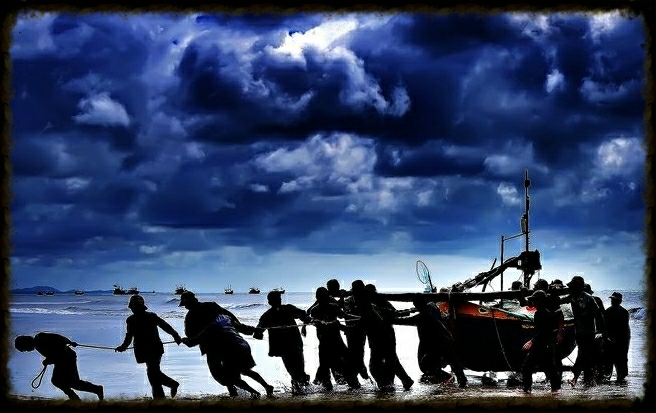 Photo Credit: Pixabay
Photo Credit: Pixabay
Here written is a cautionary tale…one with a happy ending to follow.
Across my professional and personal life, I’ve experienced a great wealth of teams, affinity groups, communities and networks. Real flesh-and-blood people gathered passionately around products or services. People who trusted and enjoyed each other, who used their influence to do good. People who expanded both their influence and ability to do good by holding doors open to others with like vision.
…and I got to be a part of all that. It was an incredible life…and I want it back.
This is not to say that my life is lacking. That’s the rub. Life is amazingly good right where I am…wait for it…but, (such a small word that screams discontent, right?). There is something that has faded, and it can for you as well, if you’re not aware and nurturing it. Don’t let it happen because it’s too valuable.
What I have discovered over the last year is that the wide-reaching, lively connections in my work and personal life have been lost…or, for sure, diminished. This is what I’m determined to correct.
You know that odd experience when you lose a phone conversation (either because of passing through a cell service dead zone or you hit the disconnect button). You or the other person continues talking for a bit not realizing the other person is not listening…has left the conversation (intentionally or not intentionally)…and once re-connected, if you’re able, you have to awkwardly figure out where you left off.
Lost connections are jarring because they interrupt a process of communicating, collaborating or cooperating together on something of value.
Human capital is when you are connected to different individuals who have the capacity and desire to do good together (in creating or innovating – a product or service). Social capital – that of teams, agencies, or other communities working together – is an even larger, richer commodity than individual human capital.
I wrote about social capital previously here.
Social capital is the willingness of people to help each other. It often replaces money which people would use to buy the same help. Most ways of measuring social capital have to do with trust – people who trust that favors and help will be available when they need it will favor and help others more. Social capital is a lot like real capital. The more money a person or a society has, the easier it is to do things and the better off people are. – Simple English Wikipedia
 Photo Credit: IResearchNet
Photo Credit: IResearchNet
Through a variety of circumstances in recent years, I have lost some social capital. Reflecting on this real situation has been very helpful and motivating for me personally.
Jon Acuff, in his book Do Over, talks about the importance of not burning bridges when we leave a job or affiliation. I’m a bridge-builder not burner, but bridges can break down, through neglect or vision change and resource realignment.
At times, the sheer force of too much change can cause connections to be lost. Repeated change can lead to chronic states of transition, and we, in those situations, can find ourselves floundering, not sure really what or whom we call team or community.
There’s the regret and the resolve.
After years of living in many countries and working in various roles, we seem settled here in Virginia, at least for now. Still, in the past few years, we have experienced many changes here in work and community affiliations. Change can be so exhausting. It can either galvanize relationships or cause trust to sag a bit…and tempt us to circle the wagons.
I’m resolved to find my way out of this…even at my “old age” and in my semi-retired status…In other words, I have the opportunity AND the resolve.
Just now I’m reading a somewhat dated but still fascinating book on social capital. Written by Tara Hunt it has a curious title: The Whuffie Factor: Using the Power of Social Networks to Build Your Business.
Photo Credit: Amazon
Hunt took that title from a commodity in Cory Doctorow‘s sci-fi novel Down and Out in the Magic Kingdom. In Doctorow’s futuristic setting, “whuffie” was the currency and it was gained by being “nice, networked, and/or notable”. A little simplistic, but I do appreciate Hunt’s 5 principles of building social capital (this in the work world, but it can be applied in other situations as well):
- Stop talking and start listening.
- Become part of the community you serve and figure out who it is you are serving. [It isn’t everyone.]
- Be notable and create amazing experiences/remarkable products for your customers.
- Embrace the chaos. Don’t overplan. Learn to be agile. Recognize everyday magic.
- Find your higher purpose. Social capital only gains in value as you give it away. Figure out how you are going to give back to the community and do it…often. – Tara Hunt
 Photo Credit: Pixabay
Photo Credit: Pixabay
7 Ways to Increase Your Whuffie Factor – Tara Hunt – Fast Company
As I keep reflecting on re-building connections, social capital is now a goal. It may look very different these days than before, but what’s most important is getting back in the game.
Jordan Harbinger, blogger and podcaster for a website called The Art of Charm, has issued a challenge that intrigues me. This social capital challenge is what I need right now.  Photo Credit: Screen Shot – Art of Charm
Photo Credit: Screen Shot – Art of Charm
The challenge itself is designed to take a month, and I’ve been sitting on it a month already. Reading books and articles on the topic and avoiding the first challenge – settling on a written goal of improving my social capital (and sharing it publicly).
Next time I write about social capital, it will be with the challenge ON! Here’s my request: it would be so helpful for me (and others) if you shared your experiences or thoughts in this area (via Comments below or in a private email). Don’t let the phrase social capital put you off. Remember it just means working/networking with groups toward something that benefits others. I’ve known the great value of that and want to figure out how to invest like that again.
Let’s shake up the world…for good…together. Game on!
Deep Connections Like These Will Make You Very Influential – Ron Carucci







































